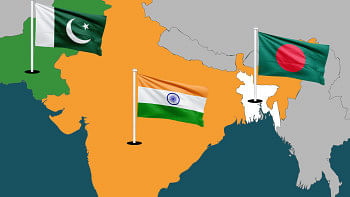Women occupy 12pc of board seats in banks

Nearly 12 percent of the board members of different banks in Bangladesh are women, a development that can give them a sense of pride.
Two banks—state-owned Janata and private UCB—have female chairpersons in their boards.
In 48 public and private local banks, 74 out of the 618 directors are women and 30 out of 40 private commercial banks have at least one female director in their boards.
In the fourth generation banks that came in the market in 2013, women have 15 percent shares on the boards.
But Islami Bank, the country's largest private bank, has no female director.
Analysts welcomed the development saying that the move would empower women more than before.
Banks are including more female directors in their boards than any time before, said Khondkar Ibrahim Khaled, a former deputy governor of Bangladesh Bank.
He said there were no female employees in banks before Bangladesh's independence.
Bangladesh Bank introduced a quota system for appointing women in banks after the independence, and now they are also taking their place in the boards which is a good sign, he said.
“Many women have inherited the seats in boards of the banks,” he pointed out on another note.
It is quite tough for a woman to buy expensive shares in bulk to become a bank's director, Khaled said.
American, European and some developing Asian countries have mandatory clause to maintain a certain percentage of women in the boards of banks and listed companies.
Norway pioneered the quota system for women directors keeping 40 percent seats in the board in 2008.
Many other countries like Belgium, France, Italy and the Netherlands followed suit and introduced quota system, keeping 30 percent to 40 percent of the board seats for women, according to The Economist.
In Belgium, France and Italy, firms that fail to comply with the rule can be fined, dissolved or banned from paying existing directors.
Germany, Spain and the Netherlands prefer soft-law quotas with no sanctions.
The quota system has increased the share of female directors by four to fivefold in some countries since 2007.
But the number of women in the boards of banks in Bangladesh has increased over the years without any such mandatory or legal provision. However, the government has initiated various measures to empower women economically and politically, which is reflected through the appointment of women directors in the boards of state banks.
The government has recently appointed Luna Shamsuddoha as the chairperson of Janata Bank, creating a record of the first woman to chair a bank.
Moreover, the government has appointed eight female directors in the boards of four state banks -- Sonali, Janata, Agrani and Rupali.
Luna said the government should bring more women into the boards of banks from various professions in a bid to empower women.
“At the same time, women need to improve their quality and capacity to lead an institution like a bank.”
The central bank has also taken various measures to empower women financially by introducing refinancing scheme, collateral-free loan, low interest facility etc. The BB also compelled banks to open a dedicated desk for women entrepreneurs.
However, the banking watchdog does not have any policy to promote women in the boards of banks.
“In Bangladesh, quota system will not be good for companies as it will give chance to non-professionals to come into boards,” said Luna.

 For all latest news, follow The Daily Star's Google News channel.
For all latest news, follow The Daily Star's Google News channel. 



Comments